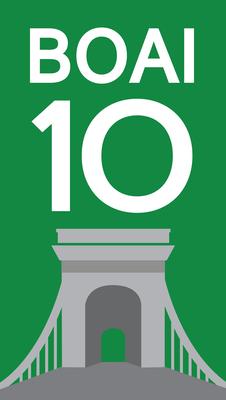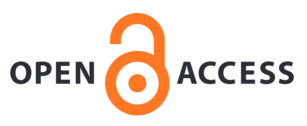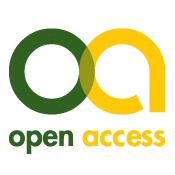

 |
 |
![]()
Scientific Research Publishing Inc. (SCIRP) is a part of the Open Access movement already since 2007 and supports the Open Access goals as outlined below. SCIRP delivers Open Access Journals (Gold OA) for comparatively low Publication Fees (also called Article Processing Charges, APC).
 "... its free availability on the public internet, permitting any users to read,
download, copy, distribute, print, search, or link to the full texts of these articles,
crawl them for indexing, pass them as data to software, or use them for any other lawful purpose,
without financial, legal, or technical barriers other than those inseparable from gaining access to the internet itself.
The only constraint on reproduction and distribution, and the only role for copyright in this domain,
should be to give authors control over the integrity of their work and the right to be properly acknowledged and cited."
[2] [3]
"... its free availability on the public internet, permitting any users to read,
download, copy, distribute, print, search, or link to the full texts of these articles,
crawl them for indexing, pass them as data to software, or use them for any other lawful purpose,
without financial, legal, or technical barriers other than those inseparable from gaining access to the internet itself.
The only constraint on reproduction and distribution, and the only role for copyright in this domain,
should be to give authors control over the integrity of their work and the right to be properly acknowledged and cited."
[2] [3]
The reuse rights from this declaration can be described today with the
Creative Commons
license Attribution
(CC BY).
![]()
"We [BOAI] reaffirm the two primary strategies put forward in the BOAI:
[3]
SCIRP has signed the declaration of the Budapest Open Access Initiative.
 The declaration includes the paragraph "Supporting the Transition to the Electronic Open Access Paradigm".
The signatories intend (among other things) to ...
The declaration includes the paragraph "Supporting the Transition to the Electronic Open Access Paradigm".
The signatories intend (among other things) to ...
SCIRP is working with well established academics on its Editorial Boards. SCIRP follows DOAJ's criteria on Transparent Editorial Boards. SCIRP follows the Code of Conduct of the Committee on Publication Ethics (COPE).
"Many supporters of Open Access hope it will not only improve accessibility but also serve to keep costs down." [6]
With offices in China, SCIRP is able to keep its Article Processing Charges low in an international comparison.
 The
open-access.net
platform provides comprehensive information on OA and offers practical implementation advice. It explains:
The
open-access.net
platform provides comprehensive information on OA and offers practical implementation advice. It explains:
"The so-called serials crisis has acted as a catalyst for the development of the OA movement and its spread beyond the scientific sector. From the mid-nineties onwards, journal prices spiraled, especially in the natural sciences. University libraries were forced to cancel subscriptions which considerably reduced access to relevant scientific and scholarly knowledge and information." [6]
"Many research funders have published an Open Access policy, in which they adopt a clear stance on OA. This policy ... clarifies the concrete funding measures and the areas of focus that arise from the organisation's stance on OA and details the conditions under which funding is forthcoming." [7]
"... more and more universities are committing themselves to OA and enabling toll-free archiving in their repositories and free access to scientific and scholarly documents. An overview of institutions' self-archiving policies can be found in the Registry of Open Access Repository Material Archiving Policies (ROARMAP)." [8]
Arguments in favor of Open Access [9]:
Directory of Open Access Journals (DOAJ)
"DOAJ is a directory of Open Access journals covering free, full-text, quality-controlled scientific and scholarly journals."
126 SCIRP journals are listed on DOAJ (2013-11-08)!
Open Access Scholarly Publishers Association (OASPA)
"The goal of OASPA is to represent and promote the interests of Open Access publishers in all scientific,
scholarly and technical disciplines by encouraging communication between them, by setting quality standards,
and by advancing the development of business and publishing models."
SCIRP is being set up to fulfill OASPA requirements.
Scholarly Publishing and Academic Resources Coalition (SPARC)
"SPARC is an alliance of academies, university libraries and research organizations which
promotes and develops low-cost alternatives to traditional publishing strategies."
SPARC Europe
SPARC Europe is a membership organization for European research libraries and research organizations.
Its mission is to create change and build a better scholarly communication system for the future.
SCIRP Journals at DOAJ hold the
SPARC Europe Seal
(2013-11-08)!.
Open Access Plagiarism Search (oaps)
"The goal of this project is to improve the integrity of Open Access resources by developing plagiarism-detection procedures
and by making a tool for automatic plagiarism detection in Open Access contexts available on the Web."
At SCIRP each submitted manuscript is checked for plagiarism. Also oaps is in use.
ResearchGATE
"ResearchGATE is an online social network for scholars and scientists.
In addition to generating a profile page, it offers users the opportunity to communicate with fellow researchers,
to manage their references and to search in various databases.
The platform has been online since May 2008 and by its own account it already has 140 000 members ...
[who] make a full-text version of the[ir] publication[s] available in Open Access."
Open Access Library (OALib)
The Open Access Library is a shared academic database which contains increasing number of OA papers
and intends to provide a handy tool to help scholars, researchers and students on their research and study.
Papers published or indexed by OALib are freely accessible by visitors from all over the world.
SCIRP is leading OALib activities.
SUBER, Peter, 2013. Open Access. Cambridge, Mass.: MIT Press.
"The Internet lets us share perfect copies of our work with a worldwide audience at virtually no cost. We take advantage of this revolutionary opportunity when we make our work "open access": digital, online, free of charge, and free of most copyright and licensing restrictions. Open access is made possible by the Internet and copyright-holder consent ... for 350 years, scholars have written peer-reviewed journal articles for impact, not for money, and are free to consent to open access without losing revenue." [1]
Follow this link for best online viewing of the book.
[2] OPEN SOCIETY INSTITUTE, 2002. Budapest Open Access Initiative: Read the Budapest Open Access Initiative. Budapest, Hungary, 2002-02-14. Available from: http://www.budapestopenaccessinitiative.org/read [viewed 2013-12-28].
[3] OPEN SOCIETY INSTITUTE, 2012. Budapest Open Access Initiative: Ten years on from the Budapest Open Access Initiative. Budapest, Hungary, 2012-09-12. Available from: http://www.budapestopenaccessinitiative.org/boai-10-recommendations [viewed 2013-12-28].
[4] MAX-PLANCK-GESELLSCHAFT, 2003. Berlin Declaration on Open Access to Knowledge in the Sciences and Humanities. München, Germany. Available from: http://openaccess.mpg.de/286432/Berlin-Declaration [viewed 2013-12-28].
[5] MAX-PLANCK-GESELLSCHAFT, 2003. MPG Open Access Policy. München, Germany. Available from: http://openaccess.mpg.de/286013/Positions [viewed 2013-12-28].
[6] OPEN-ACCESS.NET: History of the Open Access Movement: The Serials Crisis. Available from: http://open-access.net/de_en/general_information/what_does_open_access_mean/history [viewed 2013-12-28].
[7] OPEN-ACCESS.NET: Policy Measures to Support Open Access. Available from: http://open-access.net/de_en/useful_information_for/research_funders [viewed 2013-12-28].
[8] OPEN-ACCESS.NET: Initiatives and Policy Documents. Available from: http://open-access.net/de_en/general_information/what_does_open_access_mean/initiatives_and_policy_documents [viewed 2013-12-28].
[9] OPEN-ACCESS.NET: Arguments in favour of Open Access. Available from: http://open-access.net/de_en/general_information/pros_and_cons_of_open_access/arguments_in_favour_of_open_access [viewed 2013-12-28].
[10] OPEN-ACCESS.NET: Open Access Projects. Available from: http://open-access.net/de_en/communication/open_access_projects [viewed 2013-12-28].
 Prof. Dr. Scholz
Prof. Dr. Scholz